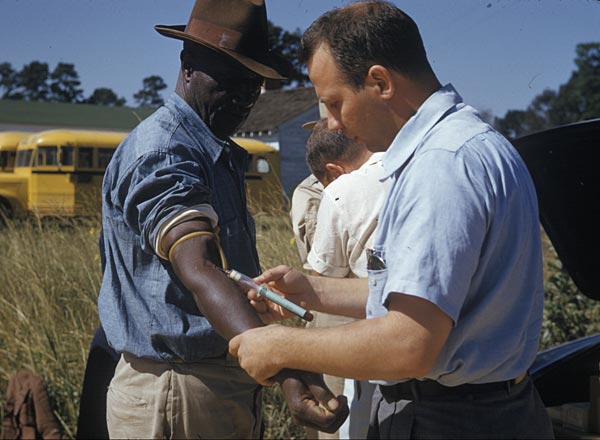The US once withheld syphilis treatment from hundreds of Black men in the name of science. Newly public records are helping us understand how it could happen
By Caitjan Gainty,
The Conversation
| 01. 12. 2024
In 1972, a whistleblower revealed that the United States Public Health Service (USPHS) had withheld syphilis treatment from hundreds of Black men as part of a 40-year study observing the natural course of the disease. The experiment’s subjects – the majority of whom were sharecroppers from rural Alabama – believed they were undergoing treatment for “bad blood”, a colloquial name then used for a host of conditions, including venereal diseases. Instead, they received placebos and inadequate medical care, even after penicillin emerged as an effective, readily available treatment for syphilis in the mid-1940s.
The Tuskegee syphilis study, as the experiment is often called today, began in 1932 with the recruitment of 600 Black men, 399 with syphilis and 201 without, to serve as the control group. Initially intended to run for six months, the study continued for decades. Unwitting participants lured in by the promise of free medical care, hot meals and burial insurance returned regularly for aspirin, tonics, blood draws and the occasional spinal tap. But none of these treatments do any good for syphilis, and 128 of...
Related Articles
By Roni Caryn Rabin, The New York Times | 01.22.2026
The National Institutes of Health said on Thursday it is ending support for all research that makes use of human fetal tissue, eliminating funding for projects both within and outside of the agency.
A ban instituted in June 2019 by...
By Mike McIntire, The New York Times | 01.24.2026
Genetic researchers were seeking children for an ambitious, federally funded project to track brain development — a study that they told families could yield invaluable discoveries about DNA’s impact on behavior and disease.
They also promised that the children’s sensitive...
By Phil Galewitz, NPR | 01.20.2026
Serenity Cole enjoyed Christmas last month relaxing with her family near her St. Louis home, making crafts and visiting friends.
It was a contrast to how Cole, 18, spent part of the 2024 holiday season. She was in the hospital...
By Dan Barry and Sonia A. Rao, The New York Times | 01.26.2026
Photo by Gage Skidmore from Peoria, AZ, United States
of America, CC BY-SA 2.0, via Wikimedia Commons
Late last month, a woman posted a photograph on social media of a purple hat she had knitted, while a black-and-white dog...




